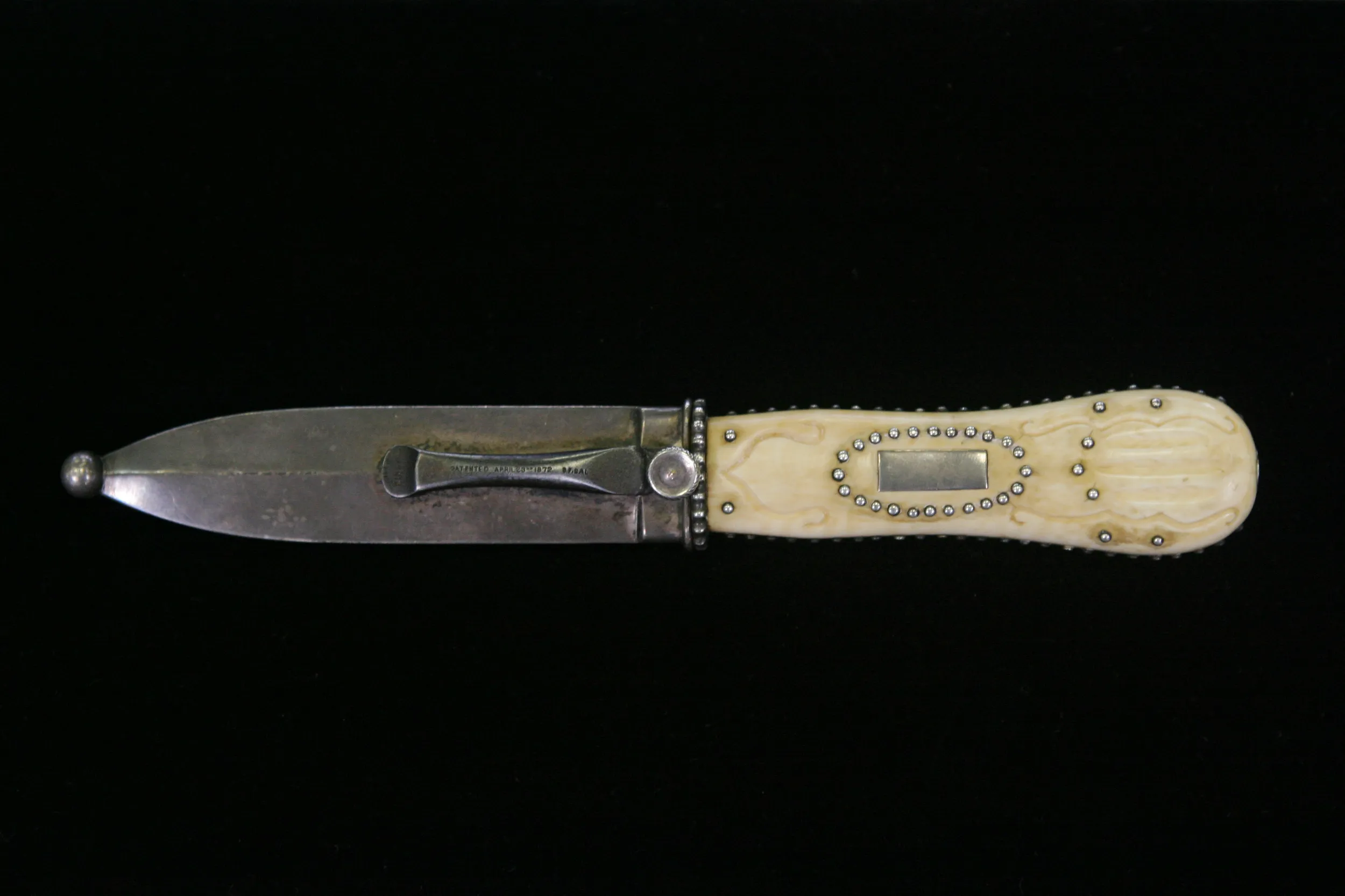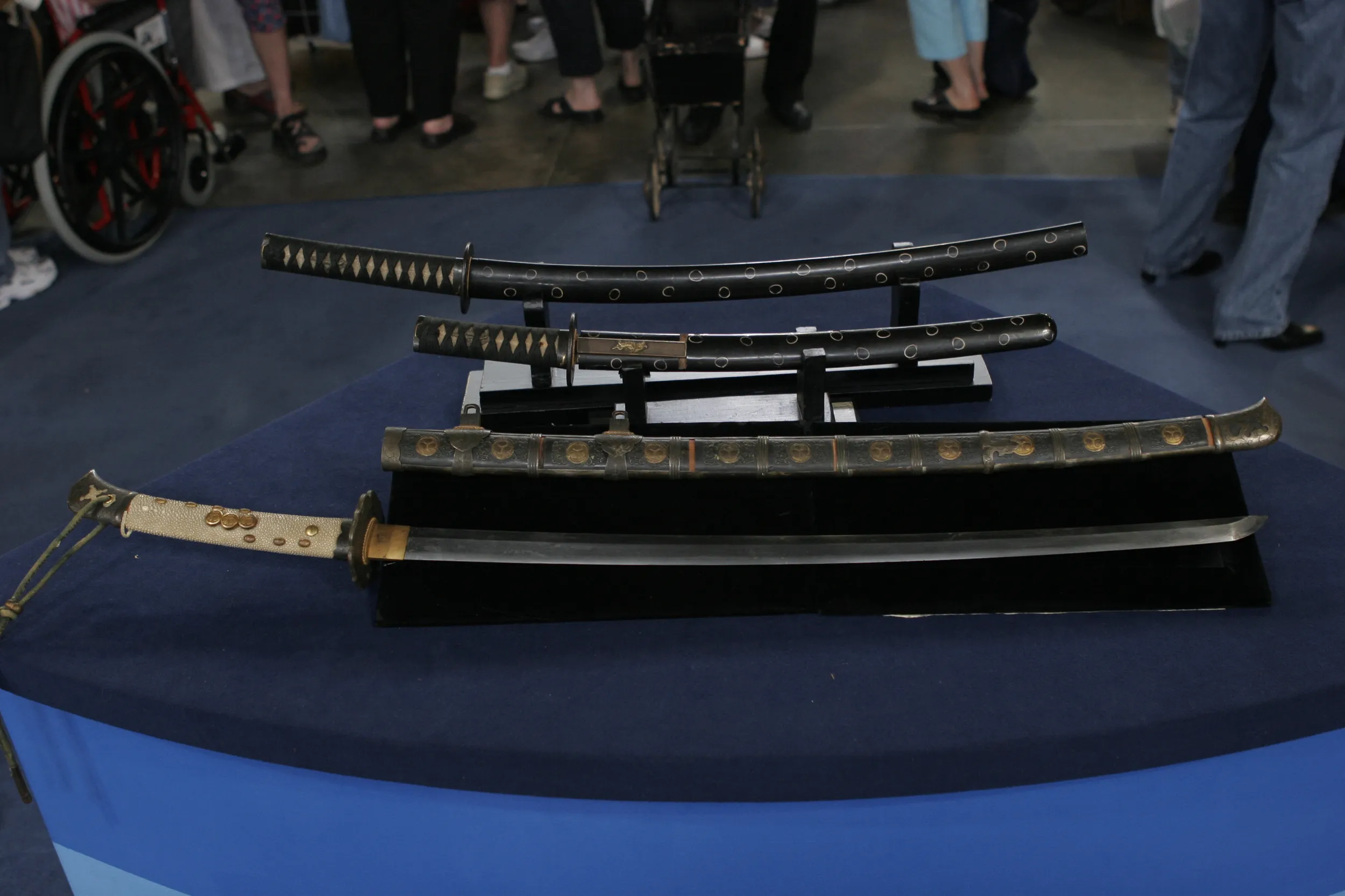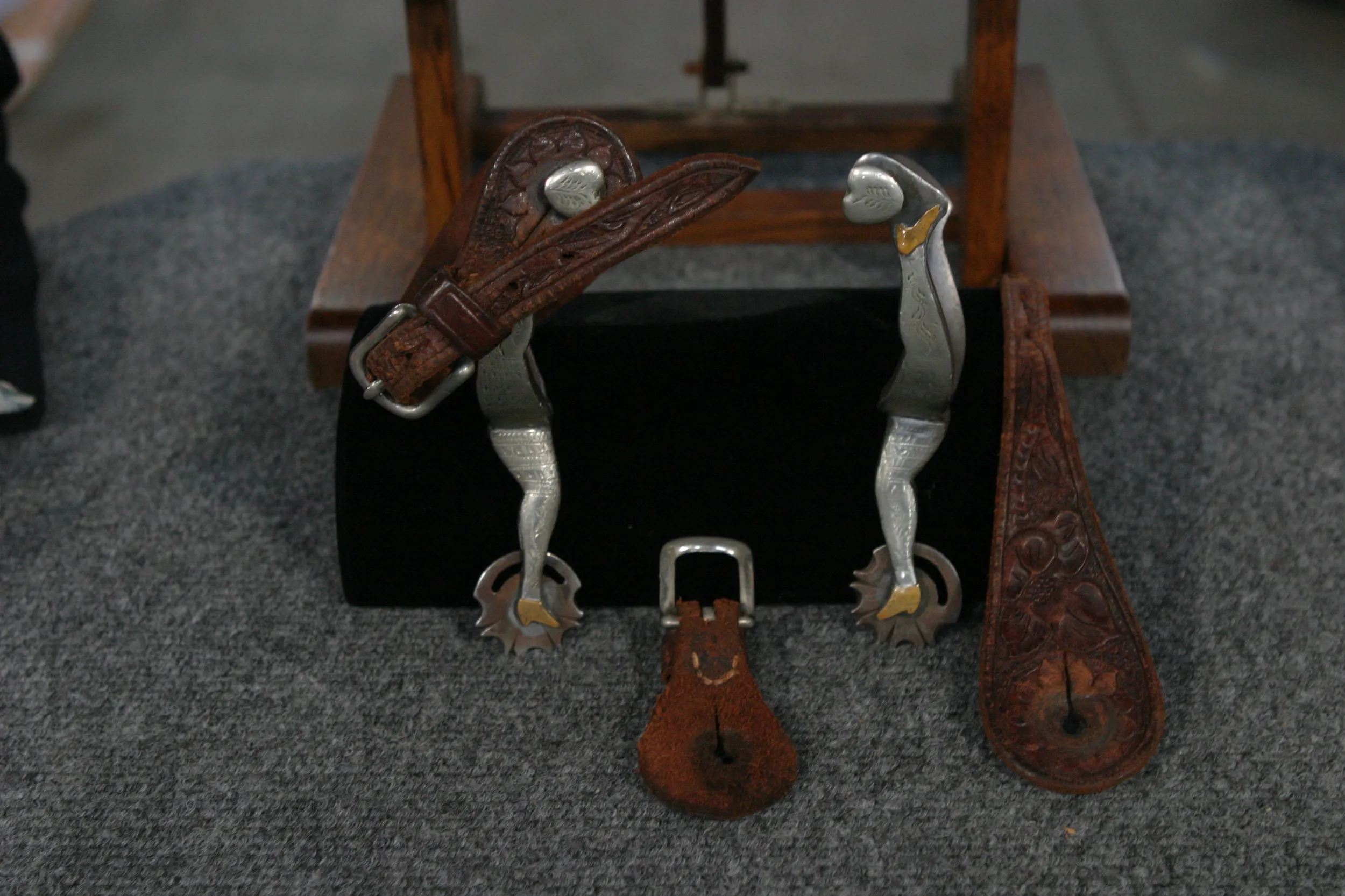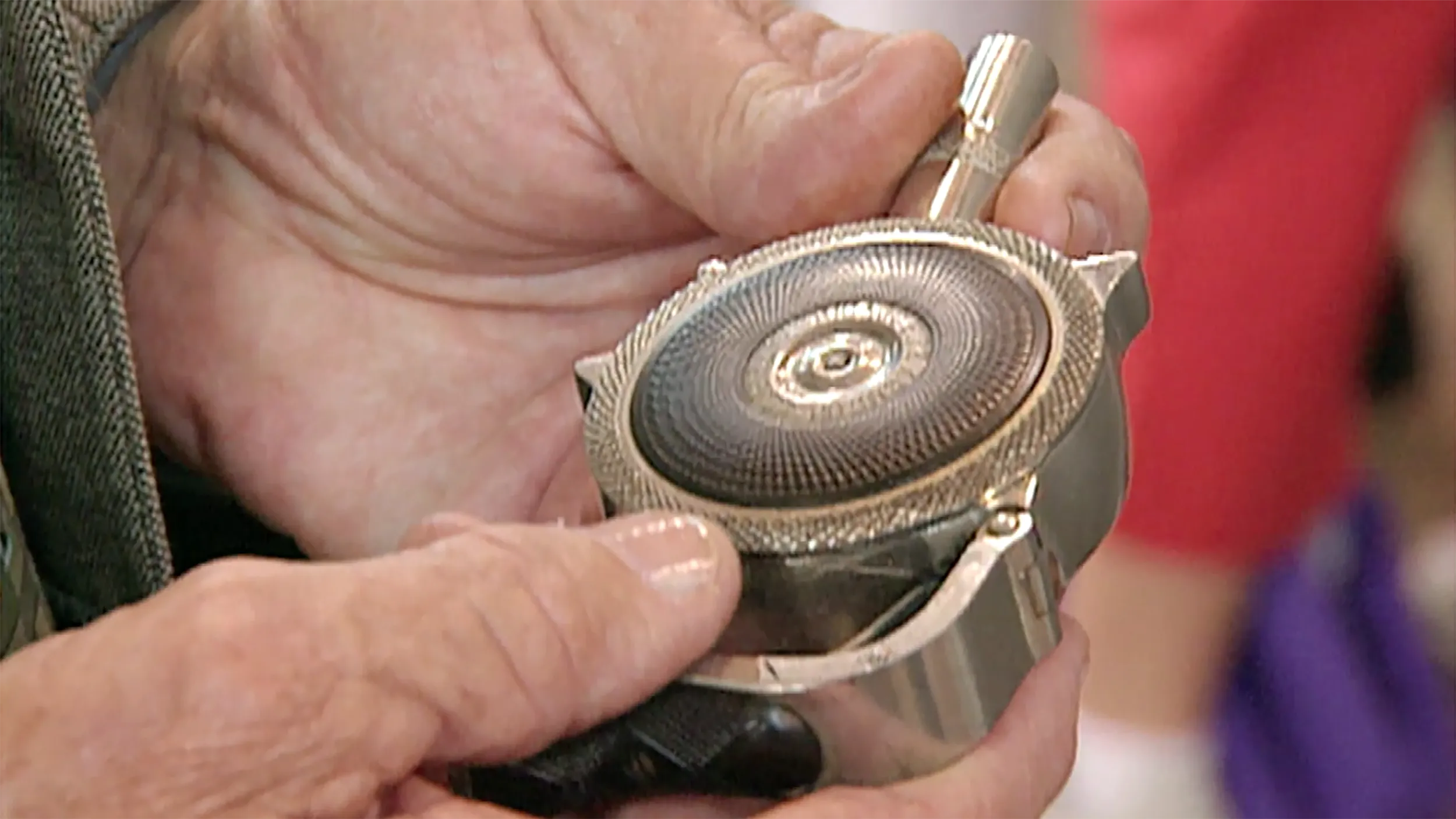GUEST: It was my aunt's, and when she passed, I inherited it from her. All I know, it was down in her rec room, hanging there for years, and she claimed it was from New Zealand. That's all I know about it, and that's why I came to the Roadshow to find out what it is and all you can tell me about it.
APPRAISER: Well, you're right about New Zealand, and it's a war club.
GUEST: A war club, okay.
APPRAISER: From the Maori. And it's called a kotiate. And a kotiate means "split liver." "Koti" is split, and "ate" is the liver. And I think it probably comes from the shape of the item. It almost looks like the two lobes of the liver. Now, it's a very special weapon, and it was used quite often by the chiefs as a power object when they were delivering speeches. And you can see here, these are the lobes, and it's made out of whalebone. And this is abalone shell here that they've inset, and here is a mythological creature that they have down there. Now, this object, it was used in close quarters in battle.
GUEST: Oh, this particular one?
APPRAISER: Yes.
GUEST: I thought it might have been just ceremonial.
APPRAISER: Well, they would use it in ceremonies when they would do the speeches, and it was then the power object. To have one of these was very important, and they also became honorary pieces that were handed down from one to the other. The hole in the middle, there would have been a thong in there. And that would have been so that when you were using it in battle, it wouldn't slip out of your hand. Now, it's a pretty gorgeous one. I mean the color is extraordinary on it. I have to say, though, that there are elements of caution here. Objects like this out of whalebone are sold in international auctions all over the world and there are no problems. Plus, this dates to about 1830-1850, so it's an old piece, it's nothing that's been recent at all. But there are moves afoot with a number of animals like the rhino and the elephant, and they're totally protected. In California there is a problem with whale items. But generally, at the moment, this is fine. But in the future, it could definitely become an issue, but the law is changing all the time. They're rewriting it. At auction, this item could be expected to fetch between $12,000 and $15,000.
GUEST: Wow.
APPRAISER: Polynesian art has become a very hot ticket in the last couple of years. It's in short supply.
GUEST: I didn't have the faintest idea of what it was worth or what it was, and I thank you for your help.
APPRAISER: You're quite welcome.











